For complicated reasons going back years, the Islamic Republic has sought to paint Iraqi Kurdistan, an autonomous zone of Iraq, as a security threat to itself and the region. In the knowledge that many opponents of the regime have ended up living there, Iranian state narratives have long tried to align the Kurdistan Regional Government to Israel, Tehran’s sworn enemy. This, in turn, gives a pretext for artillery and missile attacks on a sovereign territory neighboring Iran, as well as assassinations of dissidents.
Late on Sunday, March 13, in the latest round of such actions, the IRGC attacked a compound in the capital of Iraqi Kurdistan, Erbil, with a reported 10 to 12 ballistic missiles. True to form, the Guards claimed the site was an “Israeli spy center” and “strategic center for Zionist conspiracies”, and that the attack came in response to the killing of two of its colonels by Israel in Syria last week.
Islamic Republic of Iran Broadcasting took the line further, claiming the missiles were aimed at a Mossad headquarters. Kurdish politicians, however, have said no military buildings were hit and the US State Department has confirmed no facilities or staff at its nearby consular complex were harmed.
Growing Anxiety in Tehran Over Iraqi Kurdish Self-Determination
Tehran’s foreign policy vis-à-vis Iraqi Kurdistan is formulated based on three concerns: Sunni Kurds within Iran, Iraqi Shias, and the activities of the US and Israel both in Iraqi Kurdistan and the wider region. The Islamic Republic holds that hostile, armed groups and parties in Iraqi Kurdistan who want to see a federal system established pose an active security threat, and operates based on this presumption.
Relations between Tehran and Erbil have become more strained of late, especially after the 2017 referendum in Iraqi Kurdistan, in which more than 92 percent of participants voted in favor of total independence for the region. Officials in Iran believe that were this ever to become a reality, it would encourage independence movements in Iranian Kurdistan too.
They also believe that Iraqi Kurdish leaders’ broad-strokes alignment with American policies in the region, generally secular views and support for secular tendencies in the Iraqi government have drawn Iraqi Kurdistan and the US closer together.
The Islamic Republic also regards US participation in Iraqi Kurdistan’s economic development projects, including in oil and gas, with concern. The US is not only reaping financial benefits from these partnerships but has established a stronger presence on Iran’s borders. The apparent target on Sunday is one of the US’s biggest consular buildings in the world (the single largest US Embassy is also in Baghdad).
What Iranian Political Literature Says
Tehran likes to claim Israel is the principal and most effective champion of Iraqi Kurdish independence. A study published in 2019 by the presidential Center for Strategic Studies claims Israel benefits from the arrangement by “undermining the domestic security of countries opposed to Israel”, “reducing threats to Israel and changing the regional balance of power to Israel’s advantage by dismembering Iraq”, “intelligence surveillance of other countries in the region”, “securing the oil it needs from the Kurdistan Region” and “transferring hydro-power from Kurdistan through Jordan”.
From the point of view of the ruling clergy in Iran, Iraqi Kurdish regional leaders have begun to overstep their authority in a manner that weakens central government in Baghdad. In its summer 2021 issue, the Iranian quarterly International Studies published a report entitled Effects of the Independence of the Iraqi Kurdistan Region on the National Cohesion of the Kurdish Regions of Iran. This item claimed that independence movements in Iraqi Kurdistan region had “weakened the national cohesion of Iran's northern regions through cultural threats, political threats (ethnic and separatist demands, ethnicity and identity, ethnic nationalism, Iraqi federalism) and economic threats.”
The study ranked the “cultural threats” it claimed were posed to Iranian Kurdish areas as follows:
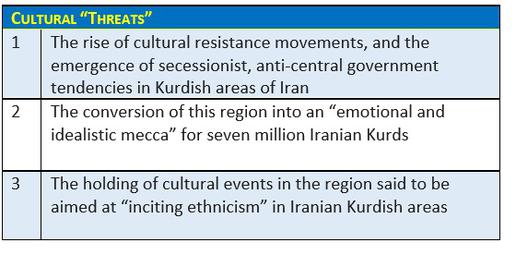
The “political threats” of Iraqi Kurdish independence were ranked as follows:
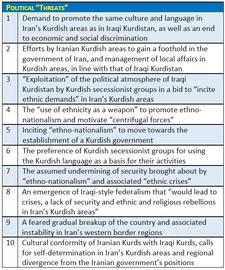
The same report also listed the feared economic consequences of independence for Iraqi Kurdistan:
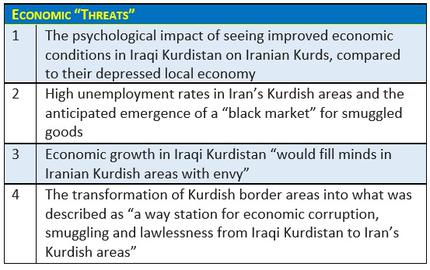
Why The Islamic Republic Keeps Attacking the Iraqi Kurdistan?
The Islamic Republic sees Iraqi Kurdistan as an open range for bombardment and the murder of dissidents. For years Tehran has refused to be held accountable by either Iraqi central government or the international community for these attacks, citing pretexts from fighting Iranian Kurdish separatist groups to countering Israel’s supposed influence.
In September 2018 the IRGC’s Aerospace Force launched seven Fateh-110 missiles at the headquarters of the Democratic Party of Iranian Kurdistan in the town of Koy Sanjaq. The IRGC claimed the onslaught came in response to an attack by this group that summer, on an IRGC border post in Marivan, Iranian Kurdistan.
The reasoning behind the latest barrage may be twofold. In mid-February a fire broke out at a strategically-important IRGC Aerospace Force base in Mahidasht, Kermanshah province, just 100km away from the Iraqi border. Iranian state-controlled media speculated at the time that either Iraqi Kurdish groups or Israel were behind the fire. The Lebanese outlet Al-Mayadeen, meanwhile, reported Israel had attacked the base from Erbil with six drones and has now claimed that the target of the IRGC’s March 13 missile was the location they had been fired from. At the time of writing, neither side has confirmed or denied the report.
Related coverage:
IRGC Confirms Missile Strike on "Zionist Conspiracy Center" in Iraqi Kurdistan
Iranian Army Commander Vows to 'Eliminate' Opposition in Iraqi Kurdistan
Rocket Attack Targets Erbil Airport in Baghdad
Iran's Campaign of Terror in Iraqi Kurdistan
Uproar Over Films' Depiction of Soleimani as "Savior" of Iraqi Kurds
Iran's Campaign of Terror in Iraqi Kurdistan
Kurdish-Iranian Negotiations: What Do They Mean?
Guards' Attack on Kurds Exposes Flawed Missile Program
Fact Check: Is Iran Interested in Uniting Different Kurdish Groups?
Three 'IRGC Agents' Sentenced to Death for Assassination in Iraqi Kurdistan
visit the accountability section
In this section of Iran Wire, you can contact the officials and launch your campaign for various problems




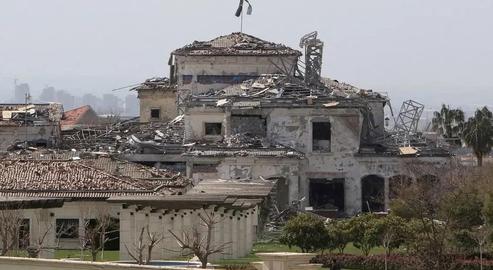
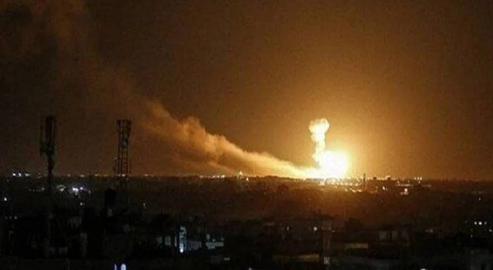




















comments